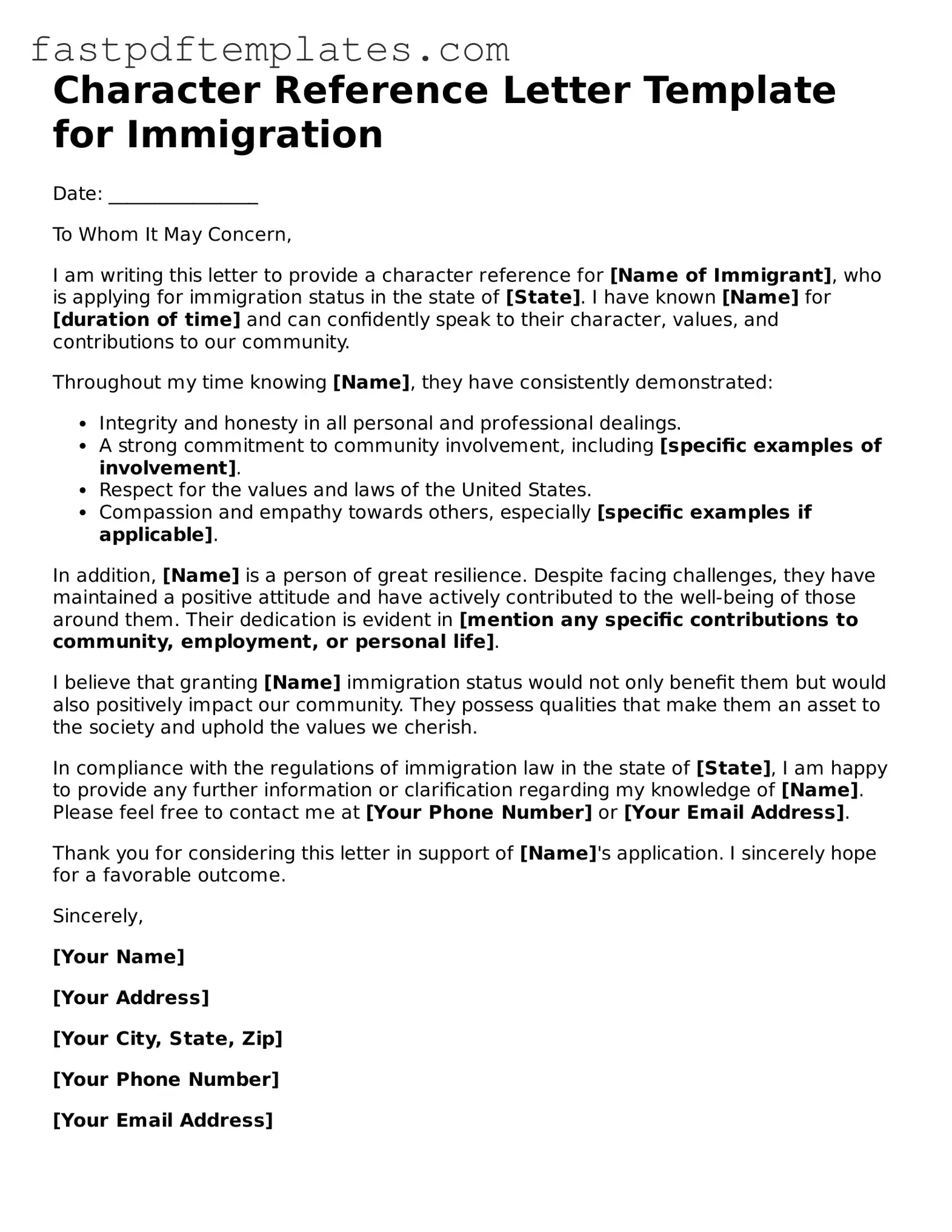A Character Reference Letter for Immigration is similar to a personal reference letter. Both documents serve to vouch for an individual’s character and integrity. Personal reference letters are often used in job applications or educational settings. They provide insight into a person’s qualities, work ethic, and overall suitability for a position or program. Like the immigration letter, they aim to build a positive image of the individual in the eyes of the reader.
Another document that shares similarities is a recommendation letter. These letters are commonly requested for academic admissions or job opportunities. They focus on the strengths and accomplishments of the individual. Just as a Character Reference Letter for Immigration highlights good character traits, recommendation letters emphasize skills and achievements that make the person a strong candidate for a specific opportunity.
A support letter for a visa application is also comparable. Both documents are designed to support an individual’s case for immigration. A visa support letter often includes details about the applicant’s background, intentions, and ties to their home country. It serves to reassure immigration officials of the applicant’s legitimacy and commitment to abide by the laws of the host country, much like a Character Reference Letter does.
A sponsorship letter can be seen as another related document. This letter is often written by someone who is financially supporting an immigrant. It includes details about the sponsor’s relationship with the immigrant and their ability to support them. Both letters aim to provide assurance to immigration authorities, showcasing the immigrant’s character and the support they have in their new country.
A letter of good moral character is similar in purpose to a Character Reference Letter for Immigration. This letter is often required in legal proceedings or applications for certain licenses. It serves to affirm that the individual has no criminal background and is a person of good standing in the community. Both documents underscore the individual’s integrity and reliability.
Another related document is an affidavit of support. This is a legal document in which a sponsor agrees to support an immigrant financially. It outlines the sponsor’s commitment and ability to provide for the immigrant. While the Character Reference Letter focuses on character, the affidavit emphasizes financial responsibility and support, both crucial for immigration processes.
A letter of employment verification also shares some similarities. This document confirms an individual’s employment status and can include details about their job performance. While it primarily serves to verify employment, it can also reflect positively on the individual’s character and reliability, similar to how a Character Reference Letter highlights personal attributes.
A family letter of support can also be compared. This type of letter is often written by family members to express their support for an immigrant. It may include personal anecdotes and affirmations of the individual’s character. Both this letter and the Character Reference Letter aim to provide a personal perspective on the individual, reinforcing their positive attributes and intentions.
Lastly, a community endorsement letter is similar in that it reflects the individual’s standing within a community. This letter may come from a local leader or organization, highlighting the individual’s contributions and character. Both types of letters serve to build a favorable image of the individual, helping to establish trust and credibility with immigration authorities.

